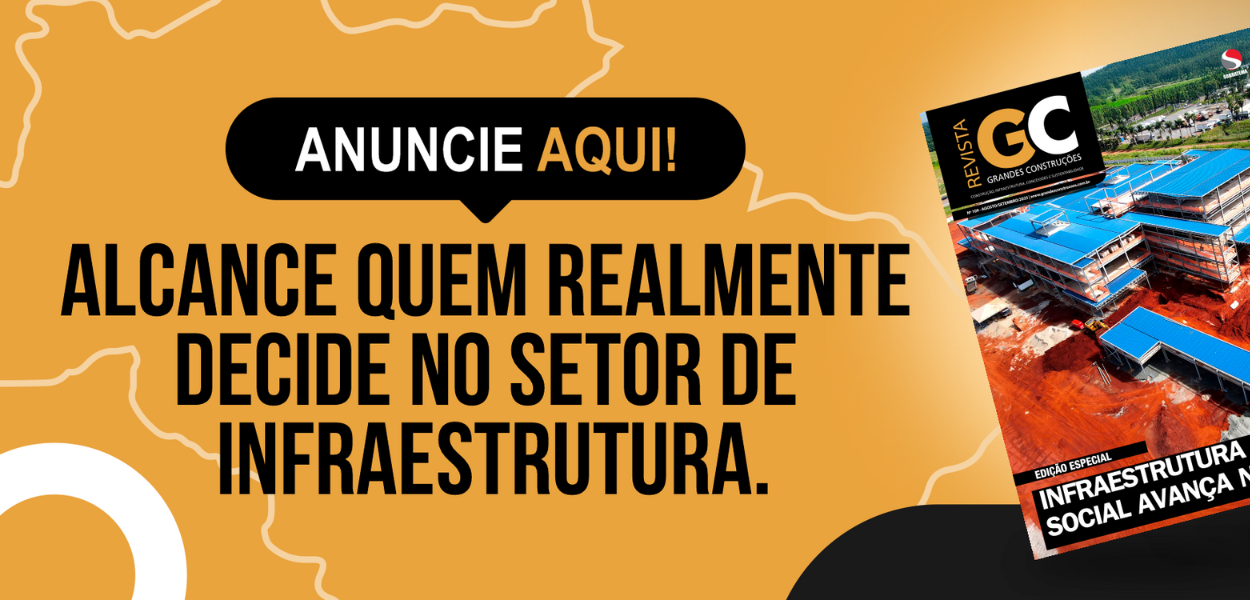Road concessions will leverage R$30.6 billion in investments during 2016

But private investors are complaining about the lack of financing for works and procurement and about the reduction in the number of vehicles which are circulating on the roads
By the fifth consecutive year, Grandes Construções magazine publishes its survey about the investments from road concessionaires in Brazil. Its proposal is to identify the investments in course and those which are foreseen for medium and long term, to quantify the origin and distribution of resources. Works are classified in accordance with the type of intervention: road maintenance, enlarging and doubling works, new works of art, safety and support to the users, among other items.
To carry out this study, 45 questionnaires were sent to the largest groups of concessionaires or to standalone operators, such as CCR, Arteris, Ecorodovias, Triunfo, AB Concessões, Odebrecht Transport, SP Mar, Tamoios and Morro da Serra. From this total, 34 questionnaires came back with detailed information, showing priority works and projects of improvement and enlargement of most roads that are part of the Brazilian network which is under concession.
We believe that this survey is quite useful for all players of the construction chain in the country since it indicates precisely where are the business opportunities of the industry to be explored for product and service supply.
Among other relevant information, the survey points that—in this situation of economic crisis—most concessionaires are prioritizing maintenance works or a set of emergency interventions which are essential to ensure the right to toll collection, postponing large works of road improvement or doubling.
This scenario led the government of interim president Michel Temer to change the rules of effective contracts and to study a new model to encourage private initiative to take part in new auctions. Increase of deadlines to carry out the works established in the contracts of the sections already conceived during the administration of Dilma Rousseff is being studied. This will probably affect directly the concessions of BR-040, which connects Brasília to Juiz de Fora (MG); BR-101 (BA-ES); BR-163 (MT-MS); BR-050 (MG-GO) and BR-060/153/262, which interconnects Federal District, Goiás and Minas Gerais.
The justification presented by the government to enlarge the delivery time of works is based not only on the scenario of economic crisis but also on problems of concession modeling. Concessionaires say that road traffic was reduced—what would impact on toll revenue—and complain that the financing of up to 70 percent of the value of works by public banks (mainly by the National Bank of Social and Economic Development – BNDES) was not honored.
Concession time of the contracts go from 25 to 30 years and establish that concessionaires have to double approximately 2,000 km of roads in four years. But just a little more than ten percent of these works—which are the minimum required for toll collection—were concluded.
In the search for a legal support which may ensure changes in contracts already celebrated, one of the alternatives studied by the Temer government is to approve a Provisional Measure about this subject. Moreira Franco, the secretary of the newly created Program of Partnerships and Investments (PPI) said that the problems faced by the concessionaires are the same of other infrastructure areas.

Av. Francisco Matarazzo, 404 Cj. 701/703 Água Branca - CEP 05001-000 São Paulo/SP
Telefone (11) 3662-4159
© Sobratema. A reprodução do conteúdo total ou parcial é autorizada, desde que citada a fonte. Política de privacidade










